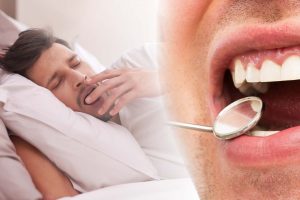The Tobacco Trail: Tracing the Path of Damage in Your Mouth
Smoking wreaks havoc on oral health through various mechanisms. First, it reduces blood flow to the gums, impairing their ability to heal and fight off infection. Secondly, it weakens the immune system, making smokers more susceptible to gum disease and oral infections. Thirdly, smoking stains teeth and causes persistent bad breath. Additionally, it slows down the production of saliva, which plays a crucial role in rinsing away harmful bacteria and protecting teeth and gums. Lastly, smoking increases the risk of oral cancer, as the harmful chemicals in tobacco can damage the cells in the mouth.
The Hazards of Smoking on Oral Health
Smoking takes a devastating toll on oral health, manifesting in various ways:
Stained Teeth and Bad Breath
Smoking causes teeth discoloration and persistent bad breath due to tobacco residues and toxins.
Gum Disease
Smokers are at a higher risk of gum disease, including bleeding gums, recession, and tooth loss, as smoking impairs gum tissue and immune defenses.
Tooth Loss
Gum disease, exacerbated by smoking, can lead to permanent tooth loss, affecting chewing and self-esteem.
Oral Cancer
Smoking significantly increases the risk of oral cancer, which is often detected in advanced stages, emphasizing the importance of quitting.
Reduced Taste and Smell
Smoking dulls taste and smell sensations, impacting one’s ability to enjoy food and beverages fully.
Your Path to Quitting: Discovering the Right Approach for You
Approaches to smoking cessation include a combination of behavioral therapies and medications. Behavioral therapies focus on identifying triggers and developing strategies to cope with cravings and withdrawal symptoms. Counseling, support groups, and cognitive-behavioral therapy are common behavioral interventions that help individuals quit smoking. Medications such as nicotine replacement therapy (NRT), which includes patches, gum, and lozenges, can help reduce cravings and withdrawal symptoms. Other medications like bupropion and varenicline may also be prescribed to aid in smoking cessation. Combining behavioral therapies with medication has been shown to be the most effective approach in quitting smoking. It’s important to consult with healthcare professionals to determine the most suitable approach for individual needs and preferences.
A Fresh Start: Maintaining Oral Health Post-Smoking Cessation
After quitting smoking, it is crucial to focus on restoring and maintaining oral health through good oral hygiene practices. This includes brushing your teeth at least twice a day with a fluoride toothpaste and using a soft-bristled toothbrush to gently clean all surfaces of your teeth and gums. Don’t forget to clean your tongue as well to remove any bacteria or residue. Flossing daily helps to remove plaque and debris from between the teeth that a toothbrush can’t reach. Additionally, using an antimicrobial mouthwash can help reduce bacteria and freshen your breath. Regular dental check-ups and cleanings are also essential to monitor and address any oral health issues. By adopting these oral hygiene practices, you can promote the restoration and maintenance of your oral health after quitting smoking.
Importance of quitting smoking for oral health and overall well-being
Smoking compromises the body’s ability to heal and recover from dental procedures, leading to delayed healing and potential treatment complications. However, the good news is that it’s never too late to break free from tobacco habits and improve your oral health. Taking the step to quit smoking is a positive and life-changing decision for both your oral health and overall well-being. It is a crucial step towards maintaining a healthy smile and enjoying a better quality of life.






